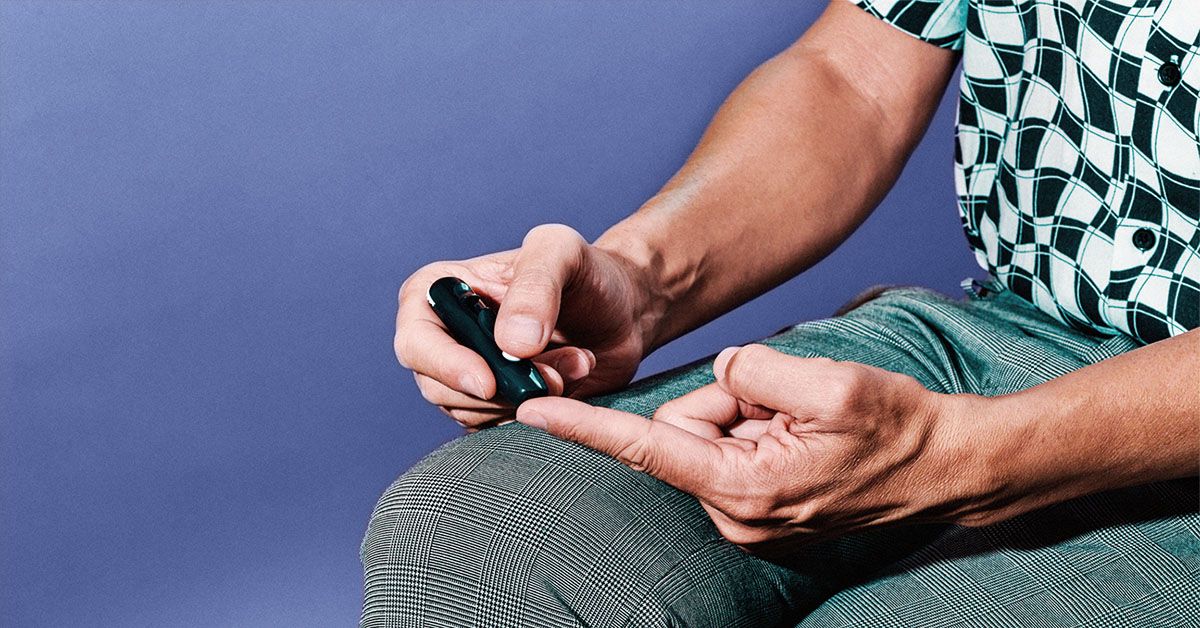- Researchers have designed a simple, cheap experimental test for diagnosing cancer.
- The test requires just a tiny dried blood spot.
- The researchers found that it has a sensitivity of 82–100% and takes just a few minutes.
- This approach may be particularly useful for people in low-income countries.
Scientists in China have created a dried blood spot test to diagnose cancer. In the new study, they focused on pancreatic, gastric, and colorectal cancer.
The system, which uses a form of artificial intelligence (AI) called machine learning, is significantly quicker and more cost-effective than current whole blood tests and other diagnostic techniques.
According to their recent paper in
Today, virtually everything is powered by AI, for better or worse. But while AI might be stealing people’s jobs and creating terrible “art,” its powers can also be used for good.
Medical researchers are busy wielding the cutting edge of AI to help us understand and manage disease.
One part of this voyage of discovery is identifying innovative ways to diagnose medical conditions. This is important work — catching diseases earlier generally leads to better outcomes.
Because some cancers are difficult to diagnose and lack reliable blood markers, some experts are investigating whether AI can help.
Currently, accurate diagnosis often requires expensive facilities, equipment, and transport. For instance, whole blood needs temperature-controlled storage in transit, which comes at a price.
As the authors of a new paper write, “Cost-effectiveness is key in disease screening.”
These costs are an additional burden for developing countries and poorer regions, where many cancer cases are missed due to a lack of access to healthcare. Because of this, some experts believe that by 2030,
Some diseases can already be
However, the most common diagnostic markers for cancer, such as microRNAs and proteins, are more easily disrupted during drying. Also, the small amount of blood harvested for a blood spot test is generally insufficient for cancer diagnosis.
Medical News Today spoke with Dr. Joel Newman, a consultant hematologist and clinical lead for pathology at Eastbourne District General Hospital, who was not involved in the study.
He talked about the difficulties of using blood spots to detect cancer:
“You have to find something detectable in a tiny amount of blood, that can be reproducibly linked with a cancer. What you don’t want to do is detect something that might be naturally occurring and lead to unnecessary further investigations or worry.”
The recent study takes an innovative approach. Rather than focusing on existing cancer markers, their technology detects cancer-related metabolic changes. As the authors explain, this is because “most metabolites remain stable on dried spots.”
They believe a cost-effective, rapid AI-powered dry blood spot test for cancer may be a viable option. Their experimental test relies on a technology called nanoparticle-enhanced laser desorption/ionization mass spectrometry (NPELDI MS).
Using their experimental test, the researchers showed it could diagnose cancer using dried blood spots with a sensitivity of 82–100%. This outperforms current whole blood tests, which they say have a sensitivity of 50–80%.
As part of their research, they exposed the blood spot tests to a range of temperatures and environmental conditions. They found that the samples remained viable. In comparison, many standard whole blood tests require very low temperatures to prevent spoiling.
Also, standard tests rely on expensive, time-consuming pretreatment of samples, whereas the blood spot test can be analyzed directly, saving time and money. Similarly, blood spot tests require less physical space, making them easier and cheaper to transport.
This approach may also be safer: The process of drying blood spots inactivates some harmful pathogens, which remain active in whole blood.
As part of their analysis, the authors assessed how many extra cases of cancer they might pick up using their dried blood spot system if it was widely implemented.
Currently, screening for colorectal cancer relies primarily on colonoscopy, pancreatic cancer requires computed tomography (CT scans), and gastric cancer is diagnosed using gastroscopy. These are all expensive techniques that require skilled medical staff.
In contrast, the authors explain that their approach “can achieve a high level of diagnostic accuracy, even when carried out by local health workers in resource-limited clinical settings.”
They estimate that undiagnosed cancer cases in underserved populations range from 34.56% to 84.30%.
However, if this new approach to population-based cancer screening was implemented in rural China, the authors estimate that rates of undiagnosed cases would fall from:
- 84.30% to 29.20% for colorectal cancer
- 34.56% to 9.30% for pancreatic cancer
- 77.57% to 57.22% for gastric cancer
MNT spoke with Anton Bilchik, MD, Ph.D., surgical oncologist, chief of medicine, and director of the Gastrointestinal and Hepatobiliary Program at Providence Saint John’s Cancer Institute in Santa Monica, CA, who was not involved in the study.
We asked whether these results were surprising:
“I was very surprised by these findings. The reduced estimated percentages of undiagnosed cancer cases […] is astonishing, particularly in less developed areas.”
To help avoid missed diagnoses, the blood spot tests would need to be rolled out population-wide, meaning that cost is an important factor.
The authors provide one example of how their technology can save money: An envelope with 100 filter paper dried blood spot tests can be sent from Gansu — one of the most underdeveloped provinces in China — to Shanghai in just 1.5 days. Shipping would cost just $0.32.
In comparison, a box of 100 liquid serum specimens, which are seven times larger, takes 4–5 days, requires cold-chain transportation, and costs $3.42.
Finding a way to diagnose cancer that is cost-effective and accurate is exciting, but there is much work to do before this technology enters the clinic.
In this study, they only tested their AI model on a few hundred samples from people known to have cancer.
Before this technology moves into the mainstream, scientists need to test it on thousands of real-world people. Bilchik, however, remains upbeat about the prospect:
“The results need to be validated and prospectively studied because this could be practice-changing and have a major impact on the diagnosis of missed cancers.”
Read the full article here





















